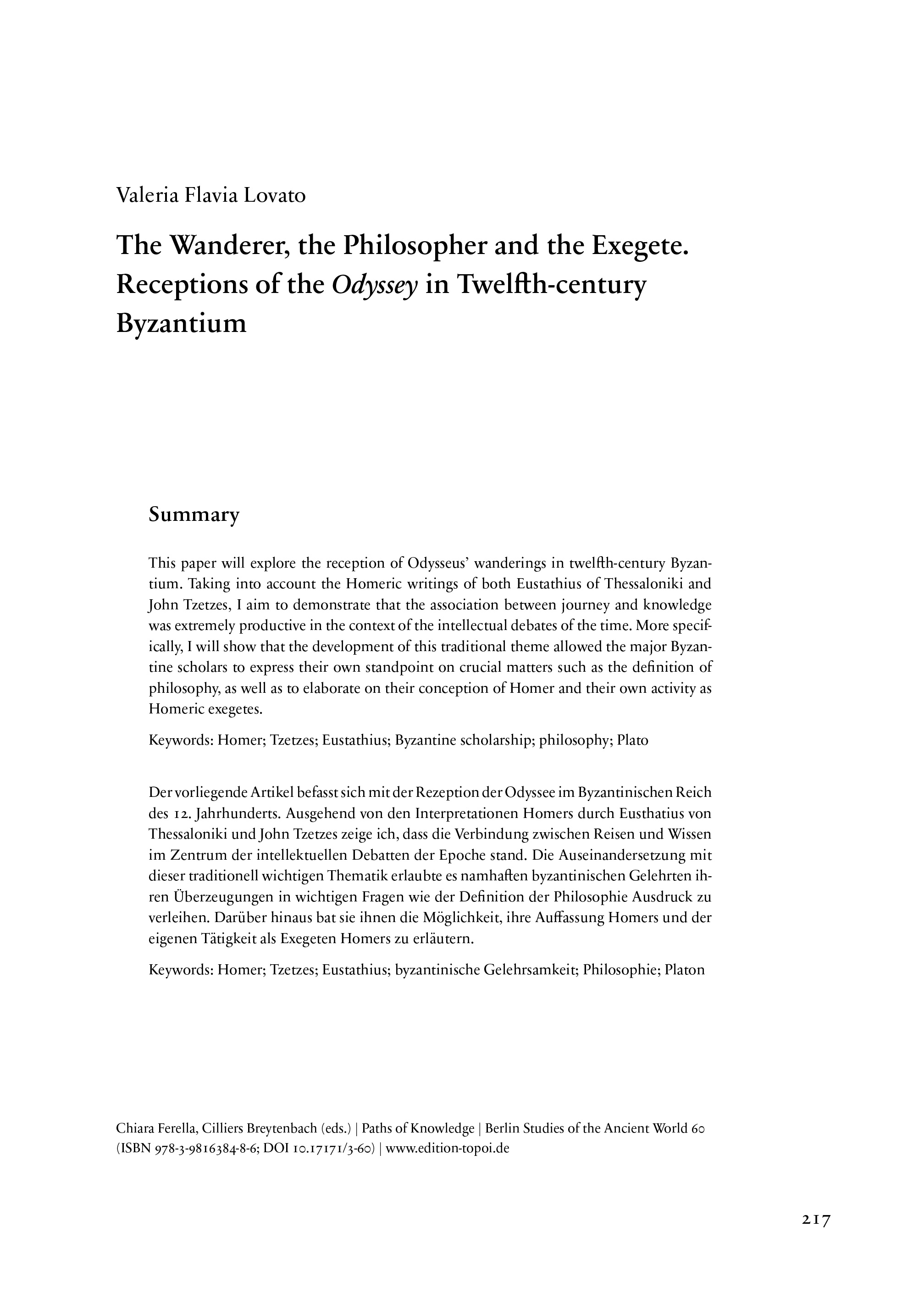The Wanderer, the Philosopher and the Exegete
Receptions of the Odyssey in Twelfth-century Byzantium
This paper will explore the reception of Odysseus’ wanderings in twelfth-century Byzantium. Taking into account the Homeric writings of both Eustathius of Thessaloniki and John Tzetzes, I aim to demonstrate that the association between journey and knowledge was extremely productive in the context of the intellectual debates of the time. More specifically, I will show that the development of this traditional theme allowed the major Byzantine scholars to express their own standpoint on crucial matters such as the definition of philosophy, as well as to elaborate on their conception of Homer and their own activity as Homeric exegetes.
Der vorliegende Artikel befasst sich mit der Rezeption der Odyssee im Byzantinischen Reich des 12. Jahrhunderts. Ausgehend von den Interpretationen Homers durch Eusthatius von Thessaloniki und John Tzetzes zeige ich, dass die Verbindung zwischen Reisen und Wissen im Zentrum der intellektuellen Debatten der Epoche stand. Die Auseinandersetzung mit dieser traditionell wichtigen Thematik erlaubte es namhaften byzantinischen Gelehrten ihren Überzeugungen in wichtigen Fragen wie der Definition der Philosophie Ausdruck zu verleihen. Darüber hinaus bat sie ihnen die Möglichkeit, ihre Auffassung Homers und der eigenen Tätigkeit als Exegeten Homers zu erläutern.

